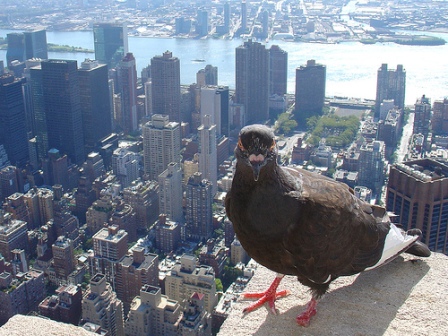Pigeon IQs Soar
Nine-spined stickleback, genius of the sea, allow me to introduce the rocket scientist of the air: the pigeon.
Scientists have discovered that pigeons are better than humans at solving statistical problems such as the Monty Hall Problem (named after the original host of the game show Let’s Make a Deal). In the problem, a person, or in this case a bird, is given three doors to choose from. One of the doors has a prize behind it, and the other two do not. After the player makes a guess, one of the remaining doors that does not contain the prize is opened and the player is given the option of staying with the initial guess or switching to the other unopened door. Studies show that humans typically fail to collect any supporting data and stick with their original guess (“classical probability”), while pigeons double their chances of winning by switching choices. It turns out that these smart birds learn to make predictions by tracking outcomes and narrowing the possibilities (“empirical probability”).
I consider this to be yet another example of why I’d be honored, not insulted, if anyone ever called me a “birdbrain.”
Written by Karin Bennett


